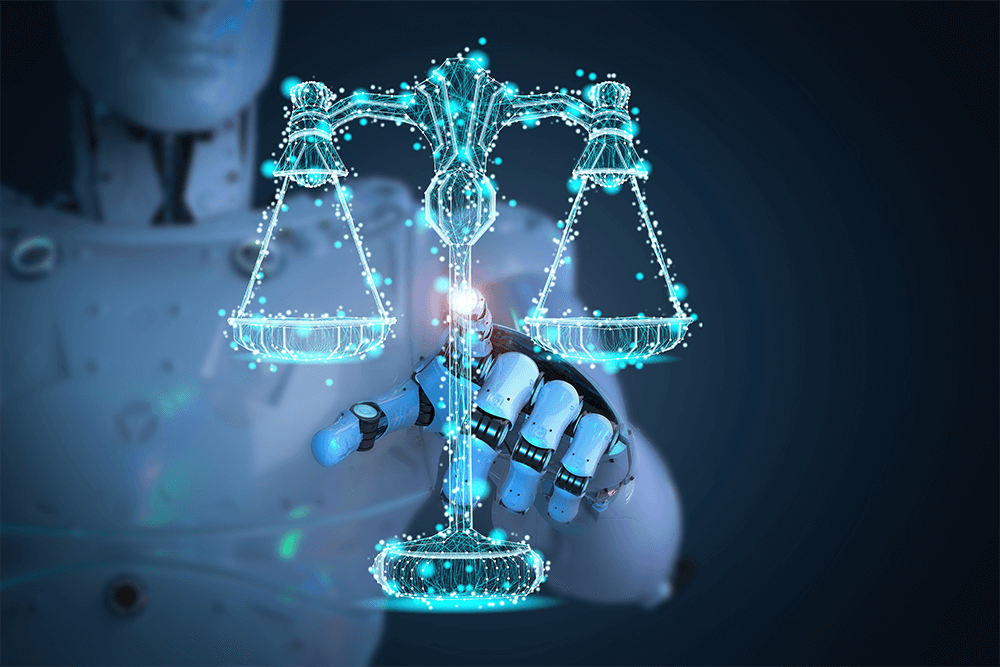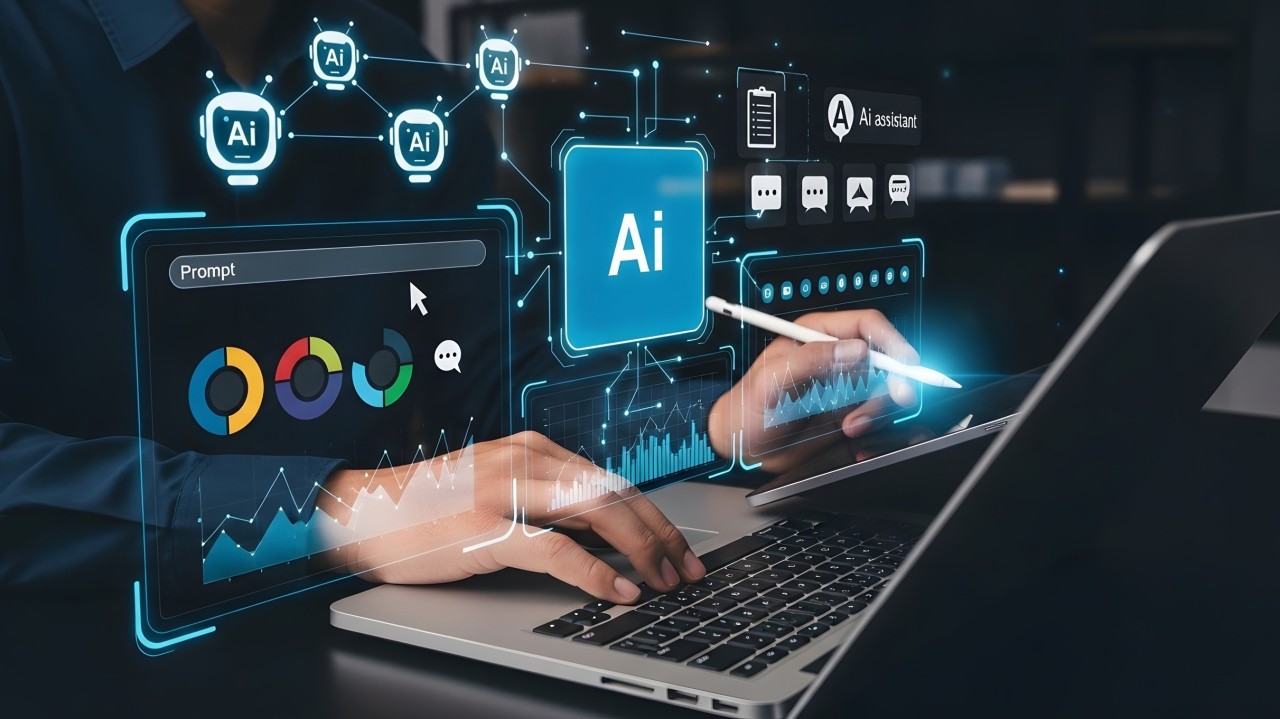The Future of Lawyers: Legal Tech, AI, Big Data And Online Courts
2 July 2021
In the future, is it conceivable that a firm would be charged with legal malpractice if they didn’t use artificial intelligence (AI)? It certainly is. Today, artificial intelligence offers a solution to solve or at least make the access-to-justice issue better and completely transform our traditional legal system. Here’s what you need to know about how AI, big data, and online courts will change the legal system.

The Future of Law
When I sat down in conversation with Richard Susskind, OBE, the world’s most-cited author on the future of legal services, to discuss the future of law and lawyers, it became apparent just how much change the legal system will face over the next decade thanks to innovation brought about by artificial intelligence and big data.
In Richard’s book The Future of Law, published in 1996, he predicted that in the future, lawyers and clients would communicate via email. This revelation was shocking at the time, especially to those working in the legal system; however, transmitting communication via email is now commonplace for lawyers and their clients. This storey gives insight into the challenges faced in bringing the traditionally conservative legal system into the 21st century.
In his brand new book Online Courts and the Future of Justice, Richard argues that technology is going to bring about a fascinating decade of change in the legal sector and transform our court system. Although automating our old ways of working plays a part in this, even more, critical is that artificial intelligence and technology will help give more individuals access to justice.
Our current access-to-justice problem, even in what are typically thought of as mature systems, is significant. In fact, only about 46% of people have access to the legal system. There are unimaginable backlogs in some court systems. for most of us, litigation takes too much time and money. We can use technology to help with this issue and make court a service rather than a place as we move legal resolution online.
Some of the technologies that would allow this transition are quite basic.
The first generation is the idea that people who use the court system submit evidence and arguments to the judge online or through some form of electronic communication. Essentially judgements move from the courtroom to online. In a digital society, we should certainly be able to institute extended courts where we go beyond decisions made by judges to some kind of diagnostic system to guide people regarding their legal options, how to assemble evidence, and provide alternative ways for dispute resolution.
The second generation of using technology to transform the legal system would be what Richard calls “outcome thinking” to use technology to help solve disputes without requiring lawyers or the traditional court system. It is entirely conceivable within a relatively small number of years that we will have systems that can predict the outcomes of court decisions based on past decisions by using predictive analytics. Imagine if people had the option instead of waiting for a court date (and support from the traditional legal system) to use a machine-learning system to make a prediction about the likely outcome of a case and then accept that as a binding determination.
Some of the biggest obstacles to an online court system are the political will to bring about such a transformation, the support of judges and lawyers, funding, as well as the method we’d apply. for example, decisions will need to be made whether the online system would be used for only certain cases or situations.
Ultimately, we have a grave access-to-justice problem. Technology can help improve our outcomes and give people a way to resolve public disputes in ways that previously weren’t possible. While this transformation might not solve all the struggles with the legal system or the access-to-justice issue, it can offer a dramatic improvement.
The Future of Lawyers
So far, the emphasis on technology in the legal system has been to support lawyers and their staff in some of the work they do, such as email, accounting systems, word processing, and more. Now, we’re beginning to see the merits of using technology to automate some tasks such as document analysis or document draughting—essentially moving from the back office to the front office.
One of our biggest struggles in the future of the law profession is law schools because they’re still generating 20th-century lawyers when what we need is 21st-century lawyers to meet the demand of companies and individuals who want a lower-cost legal option that is conveniently available and delivered electronically.
Some legal work can now be done by machines when in the past, this was unthinkable. Large disputes often have a huge number of documents to analyse. Typically, armies of young lawyers and paralegals are put to work to review these documents. A properly trained machine can take over this work. Document draughting by machines is also gaining traction. We also see systems that can predict the outcome of disputes. We’re beginning to see machines take on many tasks that we used to think were the exclusive role of lawyers.
Tomorrow’s lawyers will be the people who develop the systems that will solve clients’ problems. These legal professionals will be legal knowledge engineers, legal risk managers, system development, experts in design thinking, and more. These people will develop new ways of solving legal problems with the support of technology. In many ways, the legal sector is undergoing the digitisation that other industries have gone through, and because it’s very document-intensive, it’s actually an industry poised to benefit greatly from what technology can offer.
Richard believes that in the next decade, machines and lawyers will work alongside each other as well as some jobs being taken over by machines. Eventually, he believes that the legal system and, therefore, a lawyer’s job will change because technology is allowing us the ability to solve problems in a new way. for example, in the future, he expects there will be far fewer cases tried in a traditional court, and therefore there will be less need for lawyers who advocate on behalf of clients in a courtroom. Lawyers have a choice to either compete with these systems or help build them. Richard certainly counsels the latter.
You can watch my conversation with Prof Richard Susskind here:
Online Courts and the Future of Justice: In Conversation With Prof Richard Susskind
The Future of Layers: The Impact of Legal Tech, AI, Big Data and Online Courts
Related Articles
Is Autonomous Driving Ever Going To Happen?
By now, “smart” versions exist of just about every home appliance, gadget and gizmos we can think of. However, manufacturers continue[...]
AI And The End Of Progress? Why Innovation May Be More Fragile Than We Think
By now, “smart” versions exist of just about every home appliance, gadget and gizmos we can think of. However, manufacturers continue[...]
Dreamforce 2025: Why I’m Excited About Salesforce’s Agentic Enterprise Revolution
By now, “smart” versions exist of just about every home appliance, gadget and gizmos we can think of. However, manufacturers continue[...]
The Top 5 Technology Trends For 2026
By now, “smart” versions exist of just about every home appliance, gadget and gizmos we can think of. However, manufacturers continue[...]
The 7 Biggest Cyber Security Trends Of 2026 That Everyone Must Be Ready For
By now, “smart” versions exist of just about every home appliance, gadget and gizmos we can think of. However, manufacturers continue[...]
The 4 Myths Holding Back The AI Revolution, According To Nokia Bell Labs
By now, “smart” versions exist of just about every home appliance, gadget and gizmos we can think of. However, manufacturers continue[...]
Sign up to Stay in Touch!
Bernard Marr is a world-renowned futurist, influencer and thought leader in the fields of business and technology, with a passion for using technology for the good of humanity.
He is a best-selling author of over 20 books, writes a regular column for Forbes and advises and coaches many of the world’s best-known organisations.
He has a combined following of 4 million people across his social media channels and newsletters and was ranked by LinkedIn as one of the top 5 business influencers in the world.
Bernard’s latest book is ‘Generative AI in Practice’.










Social Media